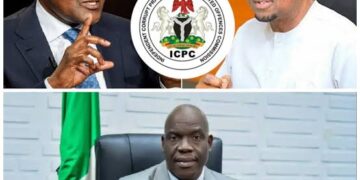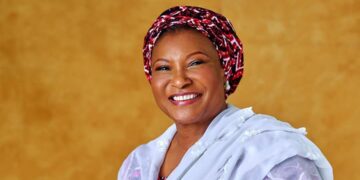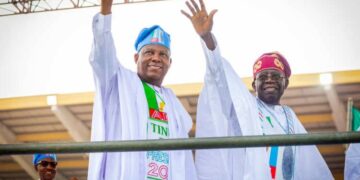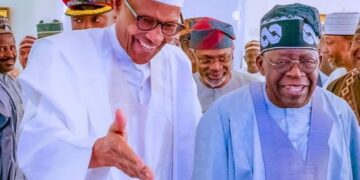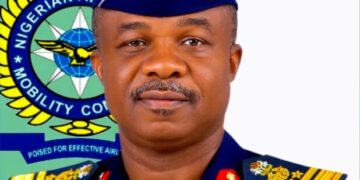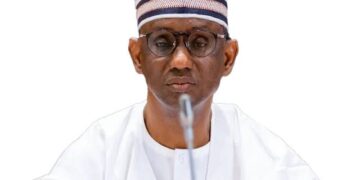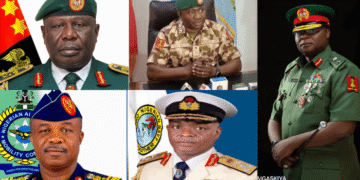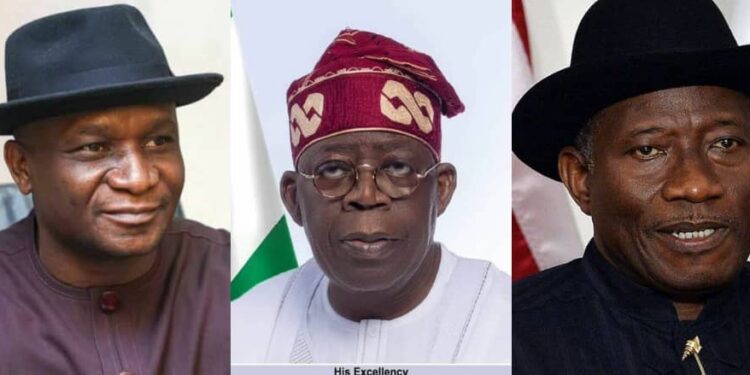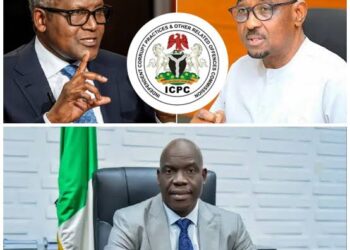PATHWAY TO NIGERIA’S GREATNESS: A CALL TO NATIONAL AWAKENING.
By Daniel A. Noah Osa-Ogbegie
I have spent most of my adult life consumed by thoughts about Nigeria, particularly my beloved Edo. These thoughts have often been weighty, sombre, and at times, despairing. Nigeria, for me, is a burden too sacred to ignore—a nation of boundless promise shackled by chronic underachievement and a perverse celebration of mediocrity. The pain deepened under the disastrous misrule of Muhammadu Buhari and has continued under Bola Tinubu, both of whom represent the same tragic arc of missed opportunities and anti-people governance.
The darkness in our land is palpable. But the real tragedy is not how deep the darkness is; it is that those who should be lights have chosen dimness—compromised, distracted, or simply withdrawn. The challenge, therefore, is not the darkness, but the refusal of light to shine.
This is my call: to those who see themselves as lights—visionaries, reformers, patriots—let us rise, connect, and become a constellation of hope. Let us form networks of courage and conviction that will illuminate Nigeria’s path out of this abyss.
However, we must be honest about the roots of our problems. Nigeria’s primary affliction is a fatally flawed process of leadership selection. We elevate the crude, the incompetent, and the corrupt—grotesque caricatures of leadership—while marginalising the best among us. It is no surprise, then, that we stumble from crisis to crisis, rudderless.
It is often said that a nation can only rise to the level of its leadership vision and the integrity of its institutions. But even that timeless truth does not fully capture what Nigeria now needs: a collective national awakening—a seismic reawakening to truth, justice, structural equity, and an unflinching commitment to the idea of Nigeria.
At this historic crossroads, Nigeria must choose either to continue on the current path of self-destruction or to boldly embrace a renaissance of purpose, justice, and visionary governance.
Greatness is never accidental. It is engineered. It is the product of bold reforms, honest reckoning, and the courageous recalibration of national priorities. Nigeria must now answer the call of destiny.
Below, I outline key steps we must take urgently if we are to transition from the present chaos into the greatness we deserve:
1. Electoral Reforms: Legitimacy Must Precede Governance
No nation can be truly great when its leaders emerge from polluted processes. Electoral fraud is not just a political sin, it is a national security threat. The ballot is the soul of democracy; when it is tainted, the entire system becomes hollow.
INEC must be restructured to become truly independent—not just in name, but in funding, staffing, and operations. Real-time electronic voting and transmission of results must become inviolable. It is scandalous that in 2025, we still depend on manual collation and opaque result sheets.
Equally urgent is the enfranchisement of our diaspora community. These are citizens whose remittances surpass our oil revenue in terms of sustaining our economy. They deserve a voice not just in sustaining our economy, but in shaping our future.
2. Structural Reforms: Returning to Federalism, Reclaiming Our Sanity
Nigeria’s unitary pseudo-federalism is a lie. One that has choked innovation and crippled accountability. True federalism is not a luxury; it is an existential necessity.
States or regions must control the resources within their domains. Let them manage their own affairs, develop their own priorities, generate their own revenues, and remit an agreed percentage—say 50%—to the centre.
This was the architecture of the First Republic. It birthed the groundnut pyramids of the North, the Cocoa House and free education of the West, and the industrial ingenuity of the East. It was an era of creative rivalries, where small was mighty, and each region pursued excellence.
Let us return to that model. Let us dream of a Nigeria where state mergers are debated for economic synergy, not where new states are created to appease ethnic egos and distribute poverty.
3. Legislative and Bureaucratic Slimming: Cut the Fat, Keep the Brain
It is obscene for a developing country like Nigeria to operate the most expensive legislature in the world. This gluttonous excess must end.
Do we truly need a bicameral legislature? The Senate, as currently constituted, adds very little unique value. We must consider transitioning to a leaner, unicameral legislature with stronger oversight mechanisms.
Beyond the legislature, the public service must be overhauled. Duplicative agencies must be collapsed. Mandates must be streamlined. Performance metrics must be enforced. Institutions like the EFCC and ICPC should be merged into one potent anti-corruption behemoth with prosecutorial independence and integrity.
4. A New National Ethic: Merit, Responsibility, and Cohesion
We must rebuild the soul of the Nigerian state. And that begins with values.
We must enthrone merit over mediocrity, competence over connections, and national interest over parochialism. The so-called federal character must evolve into federal competence. Let the best minds serve—north or south, Christian or Muslim, male or female.
The soul of any great nation is found in the strength of its institutions and the clarity of its values. This demands a cultural revolution—a rebirth of civic virtue, discipline, and public spirit. We must reimagine national orientation, not as propaganda, but as a movement to reconstruct our shared identity. No nation that mocks excellence and rewards mediocrity can survive the 21st century.
5. Towards a New Constitution: People, Not Soldiers, Must Write It
Nigeria’s 1999 Constitution is a fraud. It is not a people’s document. It is a military imposition masquerading as a social contract. It is a relic of military fiat, layered with contradictions and silences. To move forward, we must convene a new constitutional conversation, grounded in equity, justice, and the lived realities of Nigerians. The unity of Nigeria should be a negotiated one; not by force, but by fairness. Let every component entity see the union as a blessing.
We need a new constitution—one birthed by dialogue, not decrees. One that recognises Nigeria’s pluralism and builds a just, equitable framework for coexistence. Unity must be negotiated, not forced. Every region and group must see Nigeria as a shared inheritance, not an imposed burden.
This is not a call to chaos. It is a call to justice, without which, there can be no headway.
Conclusion: This Must Be Our Defining Moment
Nigeria is not lacking in brilliance, or patriotism, or ideas. What it lacks is the will to act and the moral courage to change.
The tide can turn. We can build a nation where elections are credible, where governance is decentralised and efficient, where public institutions serve the people, and where national identity transcends ethnic cleavages.
We must rise above the ruins of history and the ashes of betrayal. We must reject the politics of blame, sectionalism, and stagnation.
We must birth a new Nigeria—not in the image of our past, but in the promise of our potential.
Nigeria is not cursed. Nigeria is pregnant with greatness, but only visionary midwives, men and women of courage, clarity, and conscience; can deliver her safely into destiny.
Dan Osa-Ogbegie is a legal practitioner, statesman, and political activist.

